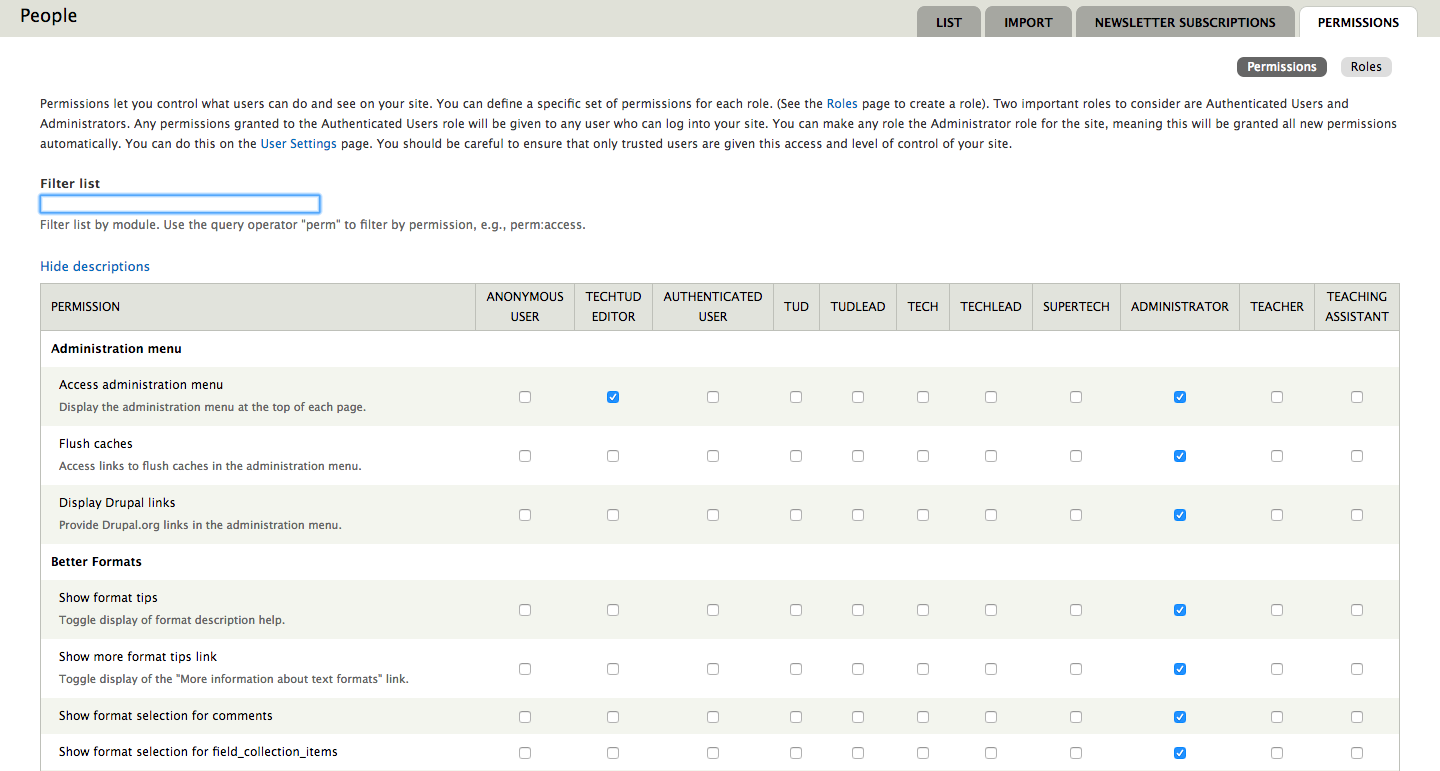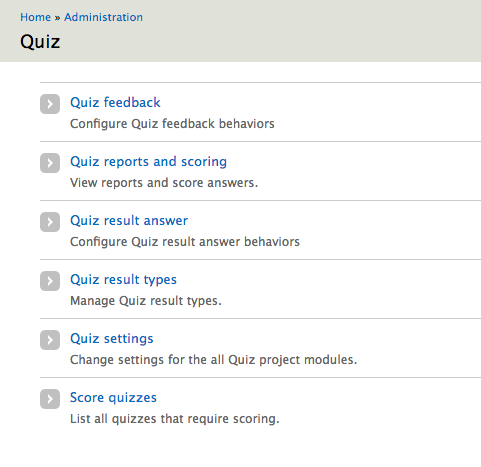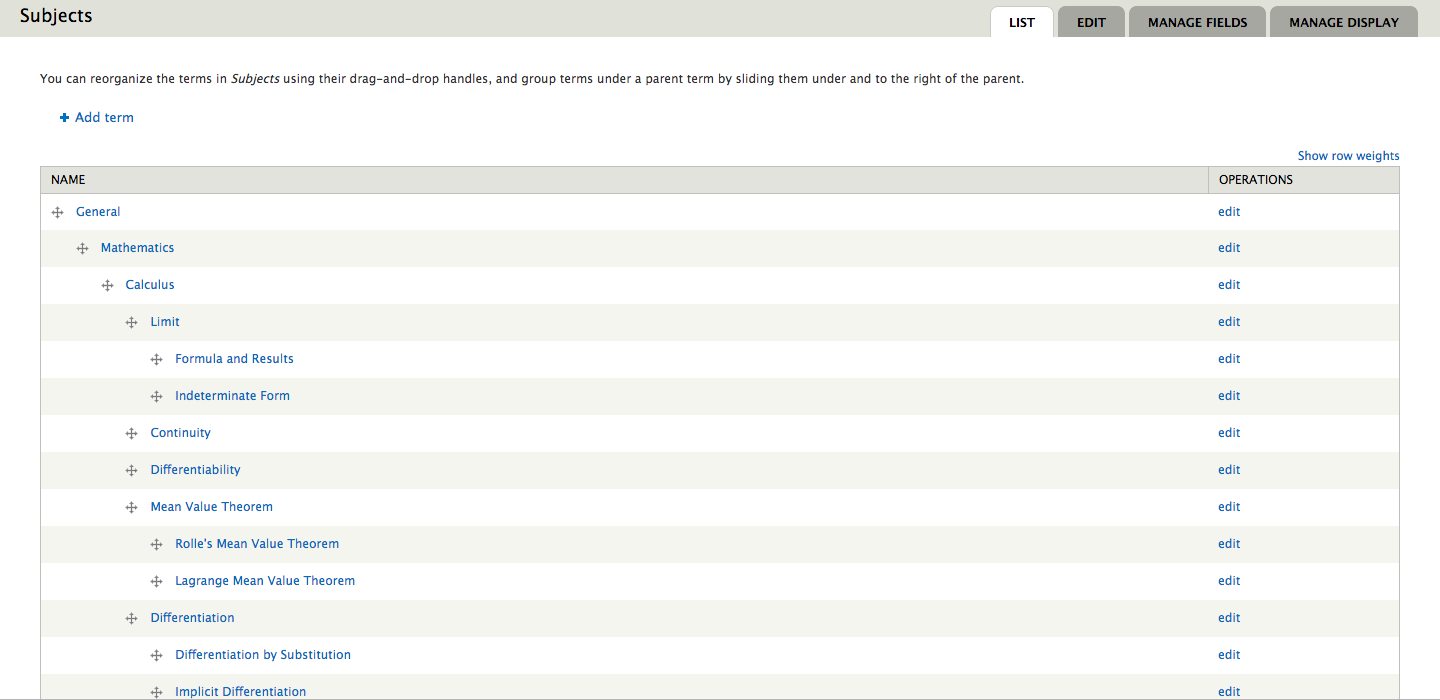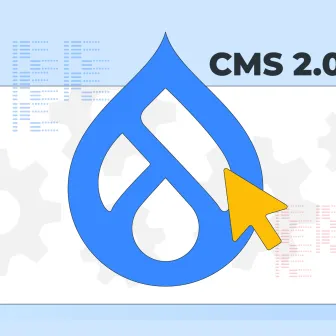This blog explains how Drupal is redefining the eLearning frameworks.
A large number of people are still hesitant to try out unconventional learning methods owing to a number of reasons. Effective eLearning and knowledge management solutions are an essential element of success for most organizations.
Drupal has been providing excellent results in the e-learning ecosystem. It has been modified for less technical admins and students with a highly robust and scalable infrastructure. Streamline it with low cost, faster loading, and easy tailoring of content, Drupal shouldn’t be a tough choice.

For an efficient and effective e-learning, the development has to be simple, faster, and less expensive. In fact, a successful LMS needs a sophisticated platform that must help its stakeholders with excellent results in less required skills making knowledge management and learning easy for both, the organization and students.
Traditional Vs E-Learning
Teaching might be a tough job but how different are the traditional and modern learning methods?
The pains and perks differ but how much?
- Making the learning more interesting
- Keeping up with the process of learning through a different medium
- Use of specific fonts, colors to ensure interactivity
- Keeping a balance with visuals
- Ensuring engagement within the group
However creative e-learning might be, the traditional learning environment, does not require the degree of self-discipline nor is it flexible in terms of deadlines and class meeting times.
What is the hullabaloo all about?
A lot is said and done in a traditional classroom through language, facial expressions, and body language. To make up for such clues and ideas, online courses have greater reading requirements.
The assignment has more directions and a deadline to adhere to, in the online learning environment. As for the learners, they complete the assignment and upload it to the LMS.
|
Drupal vs SaaS LMS: Why opt for Drupal? Distinct organizations have different learning workflow, assignment mechanism, and management process of students. With Drupal, it is easy to customize the framework according to your needs. Drupal's flexibility allows you to build custom and specific solutions. You can also create standard sets of code and extend them to meet particular client use cases. |
Digital Literacy
A traditional classroom setting requires physical presence while an online environment requires tech savviness. Learners should be able to navigate, evaluate and create information using a variety of technologies. They should be able to use the basic word and numerical processing software.
Individualized Learning
This is the leading difference and advantage of eLearning vs traditional learning. The learner experiences a one-on-one, tailored instruction that is not possible in the traditional environment. A shift from a curriculum-centered to a learner-centered environment makes eLearning a winning proposition.
Quality and Response time for Feedback
In a traditional setting, feedback is prompt. But in an online setting, feedback can take more hours. The feedback process needs to be channelized in a way that the students feel a greater sense of community support.
|
Challenges |
Become Opportunities |
|
Tracking the attendance |
Authenticate students |
|
Create student/teacher relationships |
Conduct individualized instructions |
|
Facilitate classroom management |
Provide relevant and current materials |
|
Conduct guided and group discussions |
Create virtual classrooms |
|
Manage group dynamics |
Support vigor, authenticity |
|
Manage interruptions |
Faster loading time |
Covering the Challenges and Needs with Drupal
A well-planned eLearning system will address the issues in a strong and effective way, flexible to meet the unique needs of all the participants. In this section, we will explore how Drupal is helping meet the challenges.
One of the foremost challenges remains the infrastructure. #RecreatingClassrooms
- Digital Classrooms
One of the important goals is to create the digital classrooms in a way that it keeps the feel of the classroom alive. Drupal supports many such approaches for the task.
Modules such as Organic groups enable the users to create and manage their own 'groups' with the functionality of subscribers. The subscribers from each group can also communicate amongst themselves.
It provides usual node types such as blog, story, page, etc. The block shown on the group homepage facilitates the surfer with a quick summary of the content or group. It also allows groups to be selective.
Selective groups require approval in order to become a member or even invitation-only groups. There are lots of preferences to configure groups as you need. This ensures classes remain exclusive and elusive to the disturbances.
Another module - Group - allows you to create arbitrary collections of your content and users on your site and grant access control permissions on those collections
Classes on a school website. With a teacher as the administrator, students as the members and the content as the learning material. Articles in the Group are created by the teacher and only visible to the students in the Group. Forums created in the Group are safe places to discuss the class as they are only accessible to the teacher and the students.
Revamping your Higher-Ed website? Devise content strategy for your higher education websites with Drupal
- Multiple User Types
Teachers, need to have their notes, resources, and access to different content types to organize classes/groups in a better way. When conducting virtual groups, user roles, types, and permissions are, thus, important for the security and smooth functioning of the groups also known as virtual class. Out of the box, Drupal 8 offers different user types, roles, and permissions which can be leveraged so the teacher (group coordinator) has access to different resources than the rest.

You can set:
- Anonymous user
- Email unverified user
- Authenticated user
- Confirmed user
- Community user
Additionally, you can use Multiple Registration - Drupal module - to create two user registration pages. One for general users and one, let's say, for hosters. You can add several specific fields for hoster registration page and these fields should not be available on the general user registration page. Furthermore, if you need some hosters fields only on user edit page, without showing these fields on the registration page, this module could help you here too.
|
Challenges |
Become Opportunities |
With Drupal |
|
Tracking the attendance |
Authenticate students |
School Administration module to keep a track of attendance |
|
Create student/teacher relationships |
Conduct individualized instructions |
Views and Taxonomy tagging |
|
Facilitate classroom management |
Provide relevant and current materials |
Modules such as Web form and Quiz. |
|
Conduct guided and group discussions |
Create virtual classrooms |
Comments, Forums, Polls (Drupal core) |
|
Manage group dynamics |
Support vigor, authenticity |
Modules - Group - to facilitate groups |
|
Manage interruptions |
Faster loading |
Modules such as memcache |
- Adding Content
To tap into different learning styles the presentation of the information in multiple formats simultaneously is important. In one tested example, a presentation connects the script of a video to the video itself, so that students can read the material as the video streams onto the screen.
This benefits from the reinforcement of reading and helps the virtual groups. Drupal offers IMCE module which helps in image/file uploader and browser that supports personal directories and quota. It also helps with the operations of the image (jpg, png, gif) such as resizing, creating thumbnails, setting preview. Other than setting permissions for the directory, it also supports the private file system.
- Managing Menu
Managing groups from different scenarios, in an eLearning platform, can be tough. The platform must allow users to function in both worlds very comfortably and supports educators between school and home or work and home transitions. Students have various paper schedules to keep track of their classes, and online students need the same.
Drupal’s ability to support bi-directional data sharing, along with providing an easy menu with configurable blocks of menu links with advanced features not available in Drupal 8 core.
Menu Block allows you to display blocks of menu links starting with any desired level of a menu and limited to any desired depth. This module provides an additional configuration so you can choose to expand all menu links with children or to root the menu tree to a specific menu item.
Another module, Administration menu, provides a theme-independent administration interface for easier navigation. It's a helper for novice users coming from other CMS, a time-saver for site administrators, and useful for developers and site builders.
It not only contains regular menu items — tasks and actions are also included, enabling fast access to any administrative resource your Drupal site provides.
- Managing Non-text Content
One of Drupal’s strengths is presenting different bits of information to different users based on permissions, roles, and other identifiers. To keep the learning interesting, teachers can organize quizzes, voting, or add different videos.
This is possible with the Quiz module which lets you create graded assessments. A Quiz is given as a series of questions. Answers are then stored in the database. Scores and results are displayed during or after the quiz. Administrators can provide automatic or manual feedback.

The Fivestar voting module adds a clean, attractive voting widget to nodes and comments and any entity, to keep the user interface very interesting and democratic.
- Organizing the Content
Taxonomy and its tags are one way to allow students to customize their learning experience through Drupal. Correctly classifying information is a very early premise in education and library sciences. Drupal’s core Taxonomy functionality provides an excellent basis for creating online classification systems.

To give your eLearning system a strong foundation, develop a smart nested taxonomy structure that is very clear to the end-user. Drupal will punish you if you don’t put enough time into understanding and organizing your content.
Other important modules and features by Drupal are:
- Mathjax: Allows to write all mathematical equations and displays on the webpage. Indeed a great tool for academia.
- hierarchical_select: In case of a large number of terms which is used to tag the content. These terms also have a hierarchy and the user is expected to select the child most suitable term.
- diff: Diff module give better visibility of the difference between the two versions of a content.
- Elysia_cron: A great cron management tool which gives fine grain control over each task giving the flexibility to schedule each individual task separately.
- ajax_comments: The modules enables the user to post a comment without refreshing the page
Building Edredo with Drupal
Techtud is an Edu-Tech social networking site and started in 2013. It combines various features of social networking which helps improve learning experience with videos and pictures & increasing user engagement.
The basic idea was to promote the culture of learning while sharing, on a platform which was dynamic in its own sphere. So we wanted:
1) To reinvent the traditional form of learning
2) Through a social media platform
3) Where not only students can watch videos but also add content for the larger community.
Edredo currently gets 500,000 page views per month to serve 20,000+ users all around the globe.
Challenges
The challenges revolved around building a platform which:
- Is user-friendly and has engaging features.
- Is easy-to-use, which would ease the process of identifying the content type, structure and its presentation for easy discovery.
- Needed a framework which would help add content to our database without affecting the performance of the website.
- Is flexible in providing easier workflow and management capabilities.
Result
The project was completed in 6 sprints spanning 2 weeks each. The easy workflow management ensured that the users can add as much as they want.
Edredo currently gets 5,00,000 monthly page views to serve 20,000+ users all around the globe. Building Edredo was not like building a site, it was building a community which would promote the idea of “Quality education for all”.
Looking for a web development agency which can help build your e-learning system? Contact us at [email protected] and we will get back to you as soon as possible.
Subscribe
Related Blogs
Drupal's Role as an MCP Server: A Practical Guide for Developers

"The MCP provides a universal open standard that allows AI models to access real-world data sources securely without custom…
What’s New in Drupal CMS 2.0: A Complete Overview

"Drupal CMS 2.0 marks a significant change in the construction of Drupal websites, integrating visual site building, AI…
Drupal AI Ecosystem Part 6: ECA Module & Its Integration with AI

Modern Drupal sites demand automation, consistency, and predictable workflows. With Drupal’s ECA module, these capabilities…




